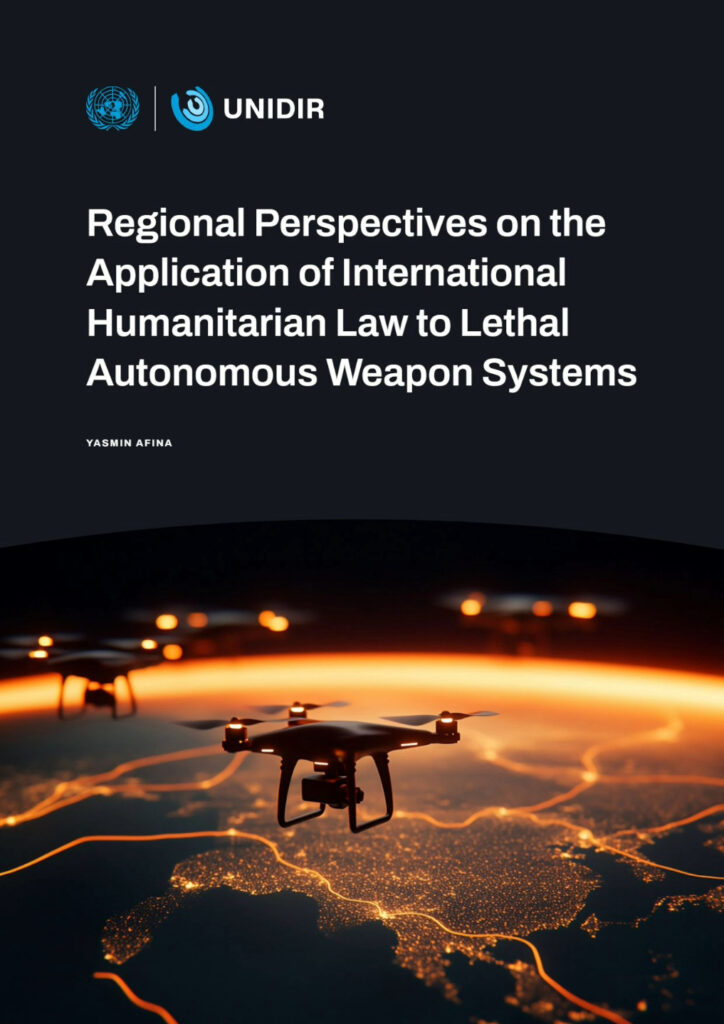States’ decade-long deliberations on emerging technologies in the area of lethal autonomous weapon systems (LAWS) have consistently discussed the application of international humanitarian law (IHL). Yet, as the international community grapples with this inherently technical and complex issue, much uncertainty and unclarity remain as to how IHL specifically applies in relation to LAWS.
Against this backdrop, UNIDIR conducted a project on working “Towards a Common Understanding of the Application of IHL to Emerging Technologies in the Area of LAWS”. Building on the momentum on this topic, UNIDIR’s primary objective was to take stock of the existing state of affairs and to capture existing views, positions and approaches – across sectors and across regions – to the application of IHL to LAWS. To this end, the Institute has drafted a separate background paper that summarizes publicly available views expressed by states, scholars and other experts participating in multilateral discussions on the applicability and interpretation of IHL with respect to the development, deployment and use of LAWS. To complement this research, UNIDIR conducted a series of bilateral and regional consultations between November 2024 and March 2025. In partnership with regional partners, regional consultations were held in The Hague, Brasília, Pretoria and Singapore. The consultations were designed to provide a platform for open discussions, knowledge and information sharing and the deepening of regional understandings on the intersection between IHL and LAWS. Held in-person under the Chatham House Rule, participants included government-affiliated experts in law, policy and defence from various ministries, national agencies and authorities, as well as a select number of scholars specializing in IHL and policy.
Citation: Yasmin Afina, "Regional Perspectives on the Application of International Humanitarian Law to Lethal Autonomous Weapons Systems", UNIDIR, Geneva, 2025.
